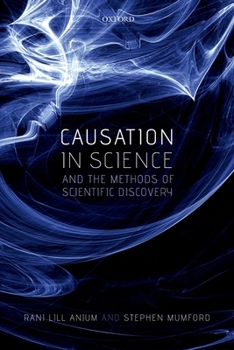Causation in Science and the Methods of Scientific Discovery
Some of the chief goals of science - understanding, explanation, prediction, and application in new technologies - can only be conducted with any purpose if the world has some significant degree of constancy in what follows from what. While causal questions are relevant to all sciences and social sciences, how we discover causal connections is no easy matter. What is the source of such predictability and how does it operate? This is a question that goes beyond science itself and requires a philosophical approach. Causation is the main foundation upon which the possibility of science rests, but what methods should we adopt in order to identify causes in science? Causation often lies hidden and, as we must work to uncover it, it is vital we adopt the right methods in science for doing so and that we have a good philosophical understanding of what causation is. The choice of methods will inevitably reflect what one takes causation to be, making an accurate account of causation an even more pressing matter, as the enquiry concerns the correct norms for the empirical study of the world. In Causation in Science and the Methods of Scientific Discovery, Rani Lill Anjum and Stephen Mumford propose nine new norms of scientific discovery, recognising that some of the greatest challenges that we face can only be solved if we understand what has caused the problem and what, if anything, could then cause its alleviation.
Format:Hardcover
Language:English
ISBN:0198733666
ISBN13:9780198733669
Release Date:December 2018
Publisher:Oxford University Press
Length:304 Pages
Weight:1.30 lbs.
Dimensions:1.0" x 6.2" x 9.3"
Customer Reviews
0 rating





